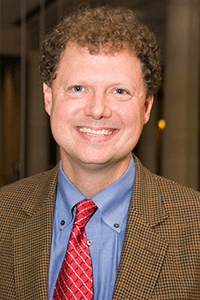I think the new developments that are the nearest are likely those that prevent PTSD development in the early hours after the trauma in the emergency department or on the battlefield, during the “golden hours” mentioned in the original interview article. There are already a number of exciting ideas being tested or soon to be tested, and the biology of memory consolidation is more mature than many other areas of stress biology. A second area that is terrifically exciting derives from the rapidly developing molecular neurobiology of fear circuitry, including amygdala* and connected limbic brain areas. It appears that there are certain “fear off” and “fear on” networks within the microcircuitry of these regions. As we better understand the receptors and other molecular identities of these cell types, rational drug design and targeting could lead to specifically activating the endogenous “fear off” network or inhibiting the brain’s “fear on” network. Overall, I’m hopeful that the combination of progress in molecular pharmacology along with greater understanding of fear learning, memory and behavior will lead PTSD to being one of the first psychiatric illnesses to be understood from molecule to mind, with rational treatments translated from bench to bedside.



